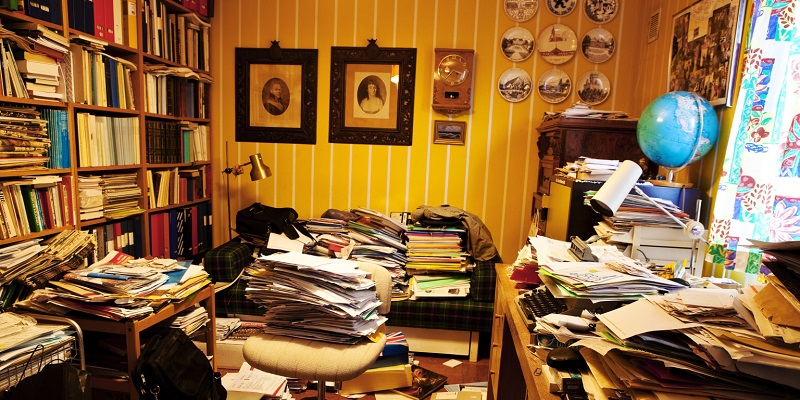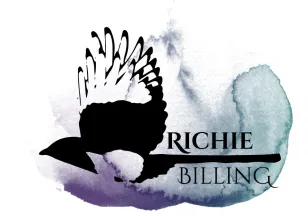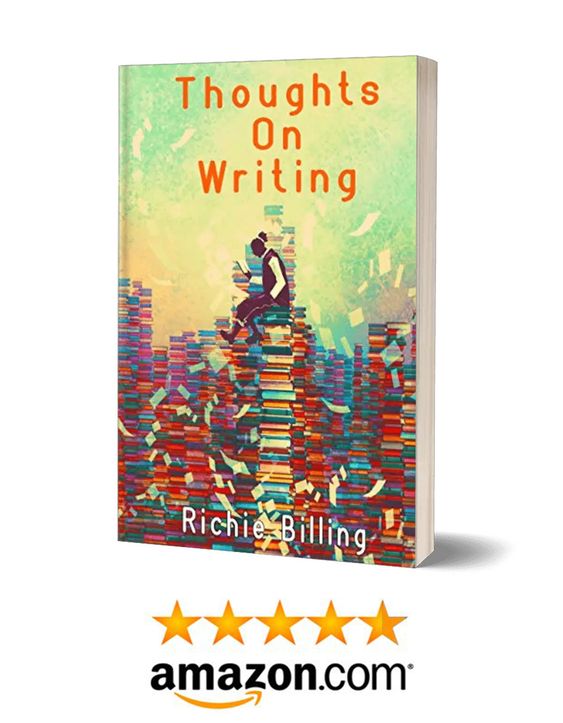Welcome to this guide on how to edit a novel. If you thought writing a novel was hard enough, how about editing one? Where do you even begin? Do you work line by line or do you focus on certain elements first and consider other matters later? That’s what we’re going to consider today.
I’ve just spent a full year editing my debut novel and I’ve learned a lot, mostly the hard way. I’m going to share what I picked up about how to edit a novel so you don’t have to make the same mistakes I did. By the end you should hopefully have a few solutions to the migraine-inducing question, ‘how do you edit a novel?’
A Variety of Approaches On How To Edit
There’s no single correct way to edit a novel. What works for one person may not work for another. You just have to try a few different approaches and see what you find the most effective is. In the sections below, we’ll talk about a few ways to edit a novel that I adopted when editing Pariah’s Lament. I’ll also share some links to other resources and guides on editing a novel you may find useful.
Avoid The Temptation of Editing Line By Line
Ah, I caught you out. This post is meant to be about ways of editing, not about how not to edit. I don’t know about you, but I think it’s just as important to learn what not to do as much as what you ought to do. That’s why I try to read as much and as widely as I can, from great writers to those who struggle to string two cohesive sentences together. There’s something to learn from everyone.
What is line by line editing? Reading through the text (you guessed it) line by line and changing each sentence, paragraph etc. at a time.

So what’s the problem with this style of editing? It’s something I’ve been guilty of in the past. When you’ve just finished writing a draft, I think line by line almost becomes the default method of editing a novel. Not quite sure where to begin with this wordy bastard, you think ‘let’s just start reading from the beginning’. Soon you chop and change lines, introduce a few sequences of dialogue, expand upon descriptions, devote more words to character development, add a bit of backstory there, a little bit of world-building here… in the end, you create the literary equivalent to letting two six-year-olds bake cookies unsupervised. Mess. All over the walls and ceiling of your mind. It’s going to keep you up at night and dissuade you from attempting to unravel your manuscript in the future.
There are so many different elements that go into a story—character, theme, plot, dialogue, to name a few—that to tackle all of them on a line by line basis is a hell of a task to keep track of. Think of each one as a distinct and long strand of thread that you carefully weave together and tie into a neat knot as you bring together your story. When working line by line, threads become easily tangled and you spend more time going back to unravel them. A less chaotic approach would be to consider each thread in turn, or rather to divide them into small, connected groups. Something we’ll come onto shortly.
Messiness aside, another issue with editing line by line editing is that if you resolve to change large chunks of text but keep others after a few tweaks and changes, those new sections will be in first draft form. They may require more work, but that could be missed, leaving the potential for jarring passages in the writing.
Don’t get me wrong, line by line has its uses and it’s a method of editing I adopt regularly. I think it should be avoided after just completing the first draft. With that first round of major edits done, line by line became the dominant method of editing for me when working on Pariah’s Lament. It’s useful for analysing prose, scanning for typos, checking syntax and the like, so hang it up in your editor’s toolbox, ready to call upon.
Attend To Major Matters First
‘How do you edit a novel?’ is a question I’ve Googled more than a few times. It wasn’t until I read Stein on Writing by master editor, Sol Stein, did I learn of a way that seemed so damn obvious and simple I felt a fool for not thinking of it myself: attend to major matters first.
What does this mean you may ask? Well, as eluded to in the section above, the idea is to focus on the core elements of the story first. Ensure the foundation of the house is solid before adding the windows and the internal fittings, if you get me. So in other words, consider the likes of character, plot and premise in your first round of editing and nothing else. Do your characters develop and grow as you intended? Is the plot consistent with the characters and their motives and abilities? Is the premise proven in the end?

When doing my first edits of Pariah’s Lament, this is what I did. I focused on my characters, the plot and premise first. I charted the development of characters in each chapter, checked to see if it was consistent with the plot and theme, and repeated the process for the whole of the book. This way I ensured my characters developed in believable ways, that they did in fact change and grow as people, that the choices they made and the outcomes of those choices were consistent, and that the premise of the story was proven by their actions and achievements.
For me, this first round of edits was the toughest. It required the most thought and engagement with the characters and the unfolding plot and a lot of checking back through notes. But having done it, I was content that I’d tackled those aspects of the story, and that freed up my concentration for other elements of the writing, like the prose itself, sharpening up dialogue, getting creative with descriptions and adding or expanding upon areas of world-building.
So if you’re about to dive into editing a novel, I’d seriously consider you try this approach, and if you wanted to go a step further, check out Sol Stein’s book.
Read Aloud
This may sound a bit daft, but reading your writing aloud is a terrific editing tool. So much so, it’s become one of my go-to methods of editing, both in my day job as a copy editor and in my fiction writing. Often when I run into a jarring piece of text, I find myself asking “How does it sound?” and proceed to mutter the sentences aloud to trace any tricky bits.
What are the benefits of reading your work aloud?
- In reading your writing aloud you can hear how it flows and what your writing sounds like, and importantly, what the words actually mean.
- By focusing more closely on individual words and their meanings, it gives you greater control of the images that you’re seeking to create in readers’ minds.
- It can help you sharpen your prose by identifying any redundant words.
- If sentence structure isn’t quite right, reading aloud will help identify it. Examples include repeated use of sentences of a similar length or similar structure.
- When editing, looking out for excessive use of adverbs and adjectives is often an important step. Reading work aloud is a good way of identifying any overdone descriptions or passages which could benefit from revision.
If, like me, you feel a bit uncomfortable reading out your work, I implore you to do your best to break through it. Not long ago my girlfriend walked into my office with a look of horror upon her face. “Who are you talking to?” she asked. Nobody. I was in the middle of reading aloud Pariah’s Lament. That was my final round of editing—reading the whole book aloud. You don’t have to preach your writings in a grand voice akin to Sir Ian McKellen. An audible mutter is all you need. Just try to ignore the fact that people might think you whisper things to yourself.
An added benefit to reading work aloud is that you naturally become better at doing so. Depending on the type of writer you want to be and how much you want to invest yourself in promotional work, if you attend events chances are you’ll be asked, or even expected, to read your work for an audience. There’s nothing worse than a writer who sucks the life out of the room with a dull, monotone voice.
If you’d rather not read your own work aloud, worry not. Help is at hand. Microsoft Word has its own speech tool called Speak. This repeats a highlighted passage of text in something of a monotone and robotic voice, which some writers prefer as it allows them to hone in on the meaning of words more.
Speak can be a little tricky to find in Word, so here’s a quick guide to get you up and running:
- Open your document in Word. At the very top, on the left-hand side close to the save button, is a little downward-pointing arrow at the end of the row of icons. This is called the Quick Access Toolbar.
- Click on this and select More Commands.
- A box will appear with a list of different commands. In Choose Commands From List, select All Commands.
- Scroll down to Speak, select it and then click Add.
- Speak will then appear alongside the save button at the top of Word. To use it, simply highlight some text and click this button.
Fresh Eyes
An important part of editing a novel is getting fresh eyes to look over it. There’s only so much your poor little iris’ can take, and after a while, your mind becomes pretty numb to the words too. I’ll be honest, by the time I finished my last edit of Pariah’s Lament, I was fed up of it. Once my head strikes this wall I find editing laborious. It’s then I look to get the opinions of others.
Most writers, either traditionally published or self-published, will seek to get some beta readers onboard. Beta readers scan your story and look for any issues to do with the likes of character, plot, theme, prose, dialogue and so forth. They’ll see things you don’t, interpret things in different ways, and give you new perspectives on your writing. Not only that, if they enjoy your story, they’ll give you lots of praise to boost your confidence levels. Very important when it comes to slogging out a novel.
Fortunately, Of Metal and Magic Publishing has a pretty good beta reader system in place in which authors working with the publisher are paired up together to read each other’s work. Not everybody benefits from such a situation, so you may have to go out and find beta readers yourself, and there may be some costs involved. Head over to Facebook and look for beta reader groups, or try searching on Twitter for beta readers using hashtags like #writingcommunity #betareaders #amediting #amwriting. You could also try forums like r/fantasy, r/fantasywriters, and r/writing, amongst others. Some kind souls will beta read for free, others may do it professionally for a fee.
Speaking of budgets, how much does it cost to edit a novel? Good question. It varies from editor to editor. The brilliant Anna Civolani, who edited Pariah’s Lament, was contracted by OMAM Publishing, but generally, she works on an hourly rate or by the number of words. Depending on the editor, you can expect to pay anywhere from $10-15+ per thousand words. So if you have a weighty tome, you’re looking at a few hundred dollars for editing, if not more.
Having Patience With The Process
Editing a novel takes time. For me, this is where the real writing is done. I treat first drafts as me telling the story to myself. Once I know what happens, it all needs to be brought together, pieces of the puzzle put in their correct positions and loose ends tied up. Editing is where I invest more time developing descriptions, expanding upon world-building, ensuring characters are fleshed out and changing as the story progresses.

You may, therefore, be wondering how long does it take to edit a novel? It took me a year of solid editing to finally get Pariah’s Lament in a state that I was content with. Don’t get me wrong, there were times when I thought “fuck it, that’ll do”, but that’s the voice of impatience, and it must be ignored at all costs. A painter wouldn’t unveil a half-finished painting, so why would you release a half-edited book. Strive for perfection. Make sure there are no silly typos. Polish the book so it gleams, so it’s the best it can possibly be. Otherwise, you’re doing a disservice to yourself and to your readers.
Extra Resources On Editing A Novel
Thank you so much for checking out my guide to editing a novel. Below, I’ve included some more resources you may find useful, including relevant guides and further reading.
Guides
Here are some other guides of mine you may find useful.
- Writing tips
- Hated writing rules
- How to write romance scenes
- How to format a manuscript
- Mental health in fantasy books
- 8 ways to kickstart your writing career
- What is characterization?
- How to write strong female characters
- What is StoryOrigin?
- How to plot a story
- What is passive voice?
- 4 ways to begin writing a novel
- How to plan a story
- How to plan a novel
- 5 Tips to Help Your Child Learn and Succeed at Primary School - February 26, 2024
- The Advantages Of Using An AI Essay Typer Alternative - February 14, 2024
- Advice On Getting Help With Your Homework - January 26, 2024

